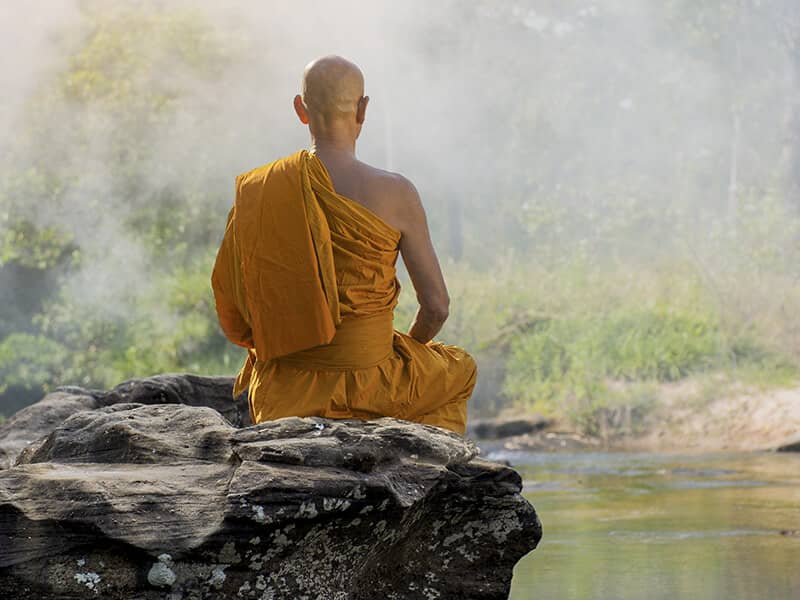After many years of Zen practice in Japan, Shunryu Suzuki came to the U.S. in 1959 and played an influential role in introducing the Western world to Zen Buddhism. He established the San Francisco Zen Center in 1962 and later wrote 'Zen Mind, Beginner's Mind,' which has become a modern spiritual classic. He died in 1971. "Not Always So" is a collection of lectures from the last years of his life.
Sitting meditation, or "zazen" is the fundamental spiritual practice of Zen Buddhism. Unlike other forms of meditation, zazen does not require that practitioners focus on any object or concept, but involves sitting without movement and concentrating on one's breath. Although zazen is a way to expand consciousness and deepen an understanding of the self, it is not considered a means to an end; a moment of zazen is itself a moment of enlightenment.
My practice [when I was young] was what we call stepladder Zen: "I understand this much now, and next year," I thought, "I will understand a little bit more." That kind of practice doesn't make much sense--I could never be satisfied. If you try stepladder practice, maybe you too will realize that it is a mistake.
If we do not have some warm, big satisfaction in our practice, that is not true practice. Even though you sit, trying to have the right posture and counting your breath, it may still be lifeless zazen, because you are just following instructions. You are not kind enough with youself. You think that if you follow the instructions given by some teacher, then you will have good zazen, but the purpose of instruction is to encourage you to be kind with yourself. Do not count your breaths just to avoid your thinking mind but to take the best care of your breathing.
If you are very kind with your breathing, one breath after another, you will have a refreshed, warm feeling in your zazen. When you have a warm feeling for your body and your breath, then you can take care of your practice, and you will be fully satisfied. When you are very kind with yourself, naturally you will feel like this.
You may think you are very warm-hearted, but when you try to understand how warm, you cannot actually measure. Yet when you see yourself with a warm feeling in the mirror or the water, that is actually you. And whatever you do, you are there.
When you do something with a warm-hearted feeling, Manjushri, the Bodhisattva of wisdom, is there, and there is the true you. You don't have to wonder where Manjushri is or what he is doing. When you do things with your warm-hearted mind, that is actual practice. That is how to take care of things, that is how to communicate with people.
Some of you are priests and some are not priests, and each of you will go your own way. Those of you who are not married and those of you who are married each have your own way of extending practice to your everyday lives. Although our situations are different, practice is the same, and we all meet Manjushri. Even though he is one, he is everywhere, with everyone and everything. Whatever you do, whatever your practice is, Manjushri is there. The secret is not to forget the true mercy of Buddha who takes care of everything. If we lose this point, whatever we do doesn't make sense.
Our monastic rules are based on kind, warm-hearted mind. The idea is not to restrict your freedom, but rather to give you freedom to behave and act in your own way. It is not so important to follow the rules literally. Actually, if you break a rule now and then, we will know what is wrong with you, and your teacher, without criticizing you, may be able to help you more accurately. This is how to improve your practice in order to have good control over your desires and your everyday life. Then you will have big freedom from everything. That is the goal of our practice both for priests and for laypeople.
Please take care of your practice. Be very kind with yourself.
Thank you very much.

